
Congratulations to the Children's Wisconsin Notable Heroes in Health Care
Children’s Wisconsin is honored to have several colleagues recognized as 2021 “Notable Heroes in Health Care” by BizTimes Milwaukee. These awards honor individuals and teams in health care who are making a difference in the lives of our patients and families.
In addition to being well-deserved, these recognitions speak to the breadth of care and services Children’s Wisconsin provides to our communities and families: COVID-19 response; diversity, inclusion and equity; mental and behavioral health; innovation and research; collaboration. As you look at the list of the winners, you will see our entire system reflected back. The mission, vision and values of Children's Wisconsin are just words. It is the day-to-day work of everyone who works here that brings those words to life and makes an impact on our community.
Congratulations to our winners, and thank you for all you do to help our families and community.
To read full profiles of our honorees, visit the BizTimes Milwaukee website.
Our winners are:
Michael Gutzeit, MD, chief medical officer
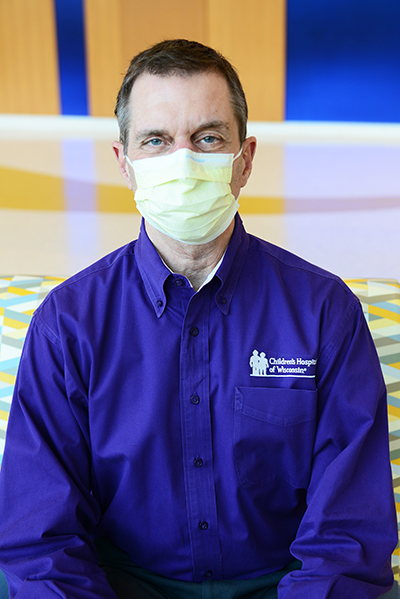 The challenges and complexities of heath care are seemingly never-ending. Add in a once-in-a-generation pandemic, and even the most accomplished and steady leaders might face moments of hesitation. But Michael Gutzeit, MD, has led with assuredness.
The challenges and complexities of heath care are seemingly never-ending. Add in a once-in-a-generation pandemic, and even the most accomplished and steady leaders might face moments of hesitation. But Michael Gutzeit, MD, has led with assuredness.
Dr. Gutzeit and his teams took the challenges of COVID-19 as an opportunity. We created a robust telehealth service virtually from scratch. We strengthened our Care Closer to Home initiatives with new clinic space throughout eastern Wisconsin. We remained committed to our outstanding workforce, and we were proud to offer pay continuity and stable hours even as the pandemic forced us to cancel all non-time-sensitive appointments and procedures.
Over the last 18 months, as our need and demand for Dr. Gutzeit increased dramatically, he leaned in. He’s always available to offer his unique insight into an issue, no matter how big or small. During the fall of 2020, when adult hospitals were facing a surge of patients with COVID-19, he worked with our hospital leaders to devise a plan that would allow Children’s Wisconsin to accept adult patients while maintaining our ability to provide the best and safest care to kids.
He has been the face of Children’s Wisconsin and a voice of reason and calm during a very challenging time. He often talks directly to our families and offers them comfort and guidance. He authored numerous emails to families explaining current practices and offering guidance. He participated in many social media live streams where he answered questions directly from concerned parents and contributed to our weekly census reports that kept families informed and assured. He meets monthly with the Southeast Wisconsin School Alliance to update them on the latest information and answer any questions they may have about returning to school safely.
Dr. Gutzeit’s ability to see the big picture, absorb differing points of view and always look forward helped us weather the storms of COVID-19. Though it’s not over yet, we’re stronger for it.
Angela Johnson, chief information security officer and vice president of supply chain
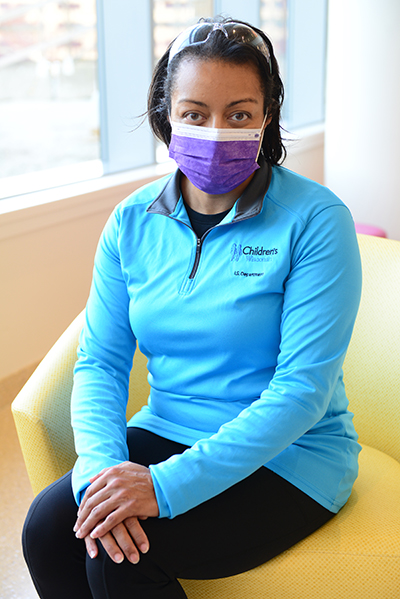 Angela Johnson is truly a silent hero each day at Children's Wisconsin. But her expertise and commitment to our community especially shined when she was tapped to lead and enable the critical technology and infrastructure required for the Alternate Care Facility at the Wisconsin State Fair Park.
Angela Johnson is truly a silent hero each day at Children's Wisconsin. But her expertise and commitment to our community especially shined when she was tapped to lead and enable the critical technology and infrastructure required for the Alternate Care Facility at the Wisconsin State Fair Park.
During the height of COVID-19 in 2020, the main purpose of this first-ever facility was to support the growing number of COVID-19 patients and to optimize our community's bed capacity for those that needed treatment during the pandemic. The task might sound straight-forward, but it was certainly more complex since it involved coordinating numerous health systems. The entire team needed to move with extraordinary speed (with no precedence) in order to stand up this new facility.
Angela spent countless hours — working through the day and night — to extend internet connectivity, communication technology, and complex critical medical systems to this facility. Technologists would especially appreciate the daunting obstacles that needed to be overcome to create protected and isolated virtual environments while adhering to strict governance, compliance, security and licensing protocols. Angela orchestrated many people, processes and tasks and she accomplished her mission beautifully — and quietly. She is a true unsuspecting health care heroine in a day and age when great medical treatment is reliant on great technology to support and enable it.
Susanne Cabrera, MD
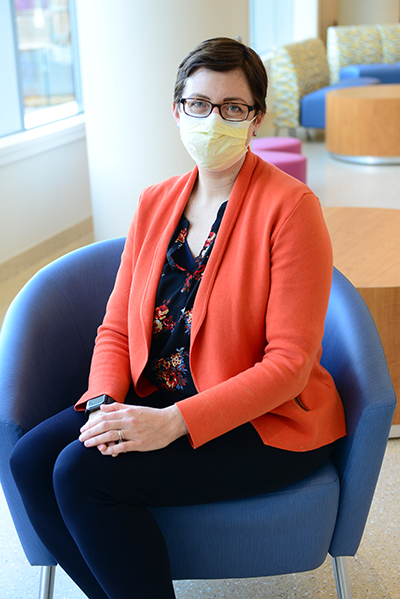 Susanne Cabrera, MD, is a pediatric endocrinologist at Children’s Wisconsin. But she’s really so much more. For countless LBGTQ+ youth in southeastern Wisconsin, she’s a savior. As the lead behind the Children’s Wisconsin Gender Health Clinic, Dr. Cabrera has helped hundreds of kids who have questions or concerns about their gender identity.
Susanne Cabrera, MD, is a pediatric endocrinologist at Children’s Wisconsin. But she’s really so much more. For countless LBGTQ+ youth in southeastern Wisconsin, she’s a savior. As the lead behind the Children’s Wisconsin Gender Health Clinic, Dr. Cabrera has helped hundreds of kids who have questions or concerns about their gender identity.
Prior to 2016, when Dr. Cabrera saw kids at the Children’s Wisconsin Endocrinology Clinic with questions about their gender identity, she’d have to refer them to other health systems in Illinois. She saw there was a need in our community and she took action to fill in.
In 2016, Dr. Cabrera, along with Jacquelyn Smith, PhD, a child health psychologist, and Lori Bush, APNP, started the Gender Health Clinic at Children’s Wisconsin, an interdisciplinary team of endocrinologists and psychologists who are devoted to supporting youth who have questions or concerns about their gender identity. It was the first clinic in southeastern Wisconsin dedicated exclusively to caring for gender diverse kids. From a handful of kids when the clinic started, today the team sees more than 35 kids per month. They provide everything from patient support and family counseling to hormone therapy and surgical intervention.
Dr. Cabrera and her team at the Gender Health Clinic do so much more than just care for kids. They are also committed to educating fellow doctors and the public about gender diverse youth. The Gender Health team regularly holds lectures and talks at Children’s Wisconsin, the Medical College of Wisconsin and in communities throughout the state. They talk to referring physicians and other caregivers to raise awareness and help others provide compassionate care.
Dr. Cabrera has dedicated her life to caring for kids. And when she saw kids who were at risk and in need of care, compassion and support, she rose to the occasion. She worked tirelessly to support families in need and offer love and dignity to gender diverse youth in Wisconsin.
Allison Friel, MOT, OTR/L, C/NDT, and Elizabeth Conrath, PT, DPT, PCS
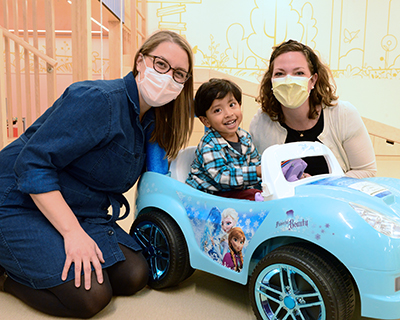 Allison Friel, MOT, OTR/L, C/NDT, and Elizabeth Conrath, PT, DPT, PCS, are the lead clinicians in the Children’s Wisconsin Go Baby Go program, which provides modified motorized cars to young children with special needs in order to improve mobility and encourage independence.
Allison Friel, MOT, OTR/L, C/NDT, and Elizabeth Conrath, PT, DPT, PCS, are the lead clinicians in the Children’s Wisconsin Go Baby Go program, which provides modified motorized cars to young children with special needs in order to improve mobility and encourage independence.
This collaboration between the Children’s Wisconsin Physical and Occupational Therapy Department and the Marquette University and Medical College of Wisconsin Joint Department of Biomedical Engineering was started several years ago by Elizabeth, a physical therapist, Allison, a physical and occupational therapist, and Gerald Harris, MD, the director of the Orthopaedic & Rehabilitation Engineering Center (OREC) at the Medical College of Wisconsin. The Milwaukee chapter, which is a branch of a larger Go Baby Go program out of the University of Delaware, is one of the largest in the country. On average, the program provides cars to more than 70 children a year, each designed specifically for each individual child and their unique needs. Last year, despite the challenges faced by the pandemic, more than 30 families received cars, and this year they have already fitted and distributed nearly 60 cars.
Self-initiated mobility is important for a child's overall development. That's why the Go Baby Go program is so important. With the help of these motorized cars, children with special are able to gain independence and improve their ability to interact with their peers and the world around them. Through the use of miniature motorized cars they can foster confidence, facilitate holistic development and reduce their dependence on caregivers.
Jennifer Henningfeld, MD, and Cecilia Lang, APNP, Trach/Vent team
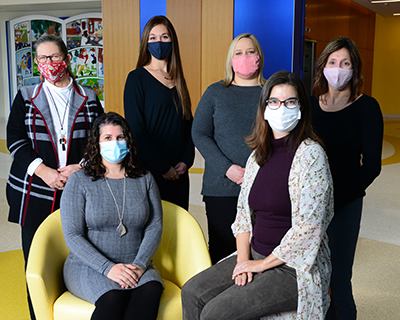 Hospitals and doctors all over were forced to adapt how they delivered their care as the COVID-19 pandemic spread across the country. But few were able to actually improve their results the way the Children’s Wisconsin Trach/Vent team did over the last 18 months.
Hospitals and doctors all over were forced to adapt how they delivered their care as the COVID-19 pandemic spread across the country. But few were able to actually improve their results the way the Children’s Wisconsin Trach/Vent team did over the last 18 months.
Every year, approximately 20-30 kids at Children’s Wisconsin have a tracheostomy tube (trach) placed and, at any given time, the Trach/Vent team is caring for around 200 children who are dependent on a tracheostomy. A trach is a breathing tube inserted through the neck to bypass the upper airway if there is blockage or anatomical issue that’s not allowing air to get into the lungs. Some kids also will have a ventilator attached to their trach to help them breathe. The ultimate goal is to reduce the time kids need to use a trach and successfully transition them off, a process called decannulation. Trach and vent patients normally meet with a multi-disciplinary team of providers in person every 3 months to assess their progress and take steps to wean them.
When the Trach/Vent team moved to virtual appointments, doctors monitored parameters remotely and also reviewed historical trends to see how patients were responding to changes over time. During appointments, providers assessed patients on camera, reviewed their data and made adjustments in real time. Patients were still able to meet with all their normal specialists, with providers from respiratory, pulmonology, ENT and speech therapy swapping on and off the virtual appointment.
The virtual appointments allowed providers to meet with patients more frequently which helped patients progress faster. The Trach/Vent team estimates they were able to decannulate patients a minimum of 2-3 months faster utilizing virtual appointments. While the Trach/Vent team has moved back to in-person visits, virtual appointments continue to be part of their care model.
Regina Cole, BS, MT(ASCP), CCRP, clinical research coordinator with Herma Heart Institute
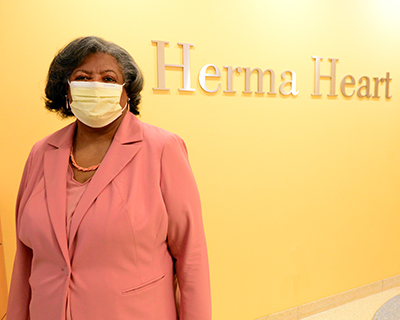 In 2013, the Herma Heart Institute (HHI) was fortunate to recruit Regina Cole as a Clinical Research Coordinator. Regina is the most compassionate individual we have been fortunate to work with. Every day, Regina gives 110 percent to our program by engaging with patients, families, and working diligently to support physicians and their academic and clinical programs. She is selfless and dedicated, making herself available 24/7 and graciously working evenings and weekends to support our mission of improving outcomes from kids with congenital heart disease. Kind-hearted and considerate, Regina has touched the hearts and souls of so many of our patient families and team members, through the organization of HHI Parent Education Days and the Family Zoo picnics. These events bring so many smiles to all our faces and it’s all thanks to Regina!
In 2013, the Herma Heart Institute (HHI) was fortunate to recruit Regina Cole as a Clinical Research Coordinator. Regina is the most compassionate individual we have been fortunate to work with. Every day, Regina gives 110 percent to our program by engaging with patients, families, and working diligently to support physicians and their academic and clinical programs. She is selfless and dedicated, making herself available 24/7 and graciously working evenings and weekends to support our mission of improving outcomes from kids with congenital heart disease. Kind-hearted and considerate, Regina has touched the hearts and souls of so many of our patient families and team members, through the organization of HHI Parent Education Days and the Family Zoo picnics. These events bring so many smiles to all our faces and it’s all thanks to Regina!
In addition to her excellent clinical care, Regina is an advocate for supporting our local community, and engaging in diversity, inclusion and equity initiatives. As an employee of the Medical College of Wisconsin (MCW) for more than 20 years, Regina has also been an instrumental leader and voice on campus in ensuring that processes and programs are impartial, fair. She has served on the MCW Diversity and Inclusion Action Committee for years as a member and a co-chair (a nominated role). Regina is a member of the MCW Community Citizenship Mission Engagement Group and leads the HHI Diversity, Inclusion and Equity group. As a Black woman, sharing the information and teaching her colleagues about the meaning of diversity and inclusion requires courage, compassion and openness. She is an excellent teacher, model, leader, advocate and resource. It is because of her that there is, and will continue to be, positive changes that make this campus, city and state, a better place. She makes her colleagues, and so many others, want to be a better person.
Children's Wisconsin Resources

Written by
Evan Solochek
Writer
Related Stories
No related articles found.



